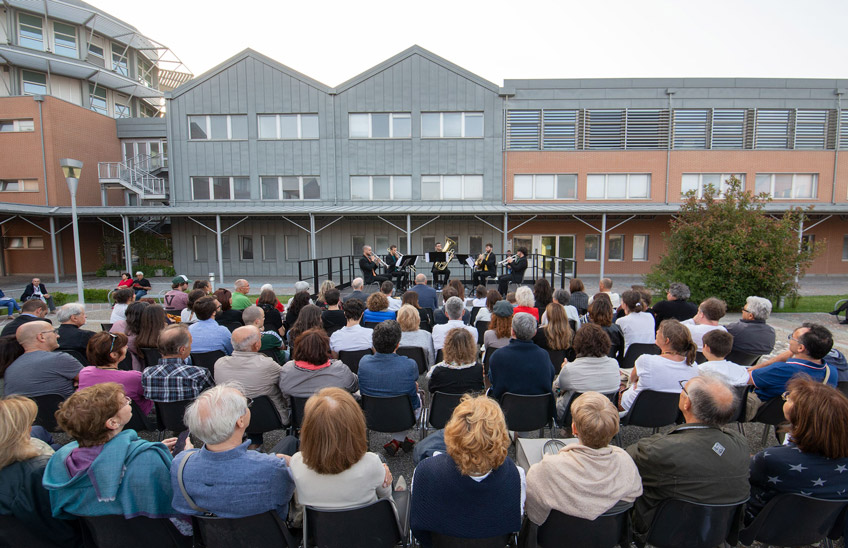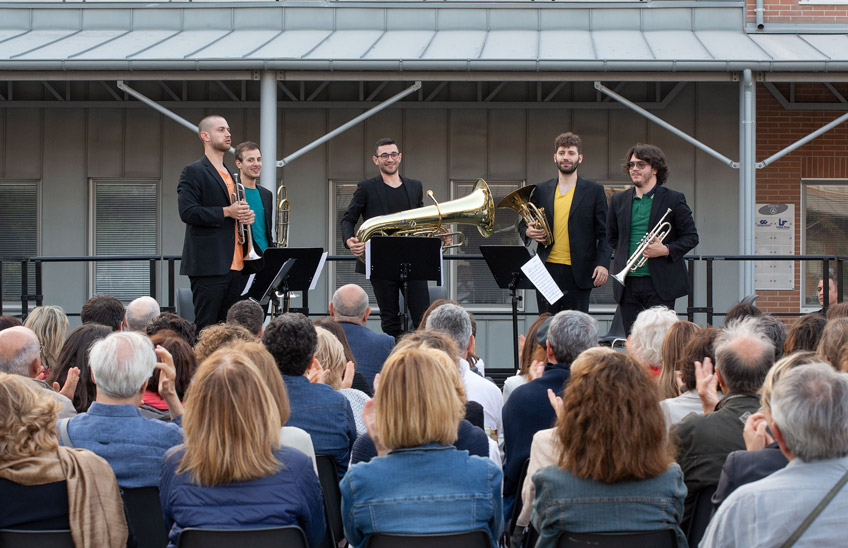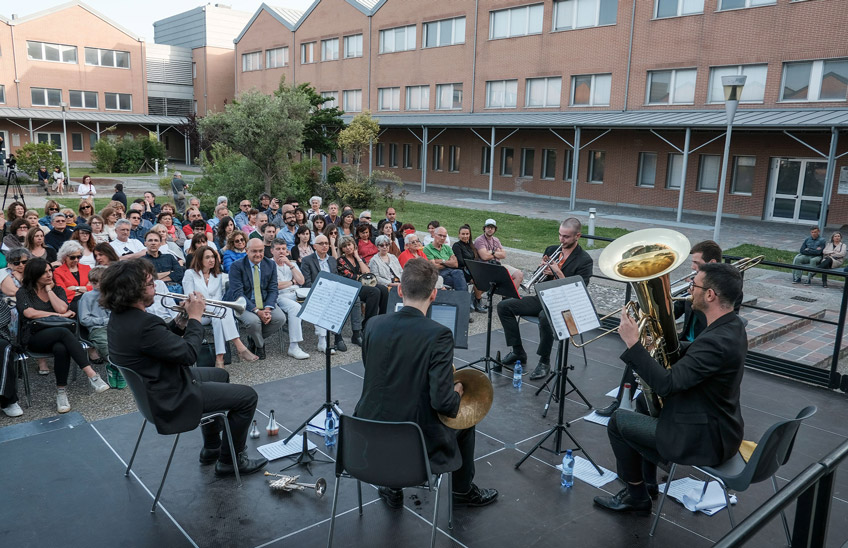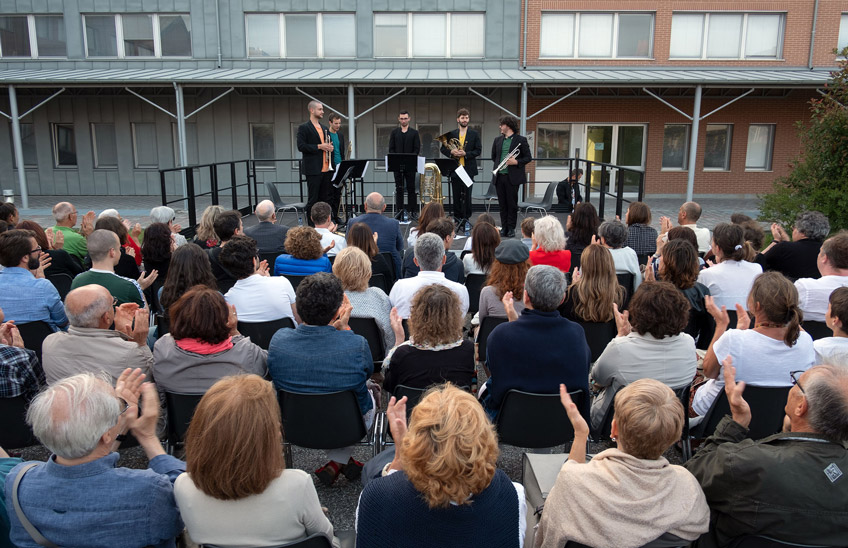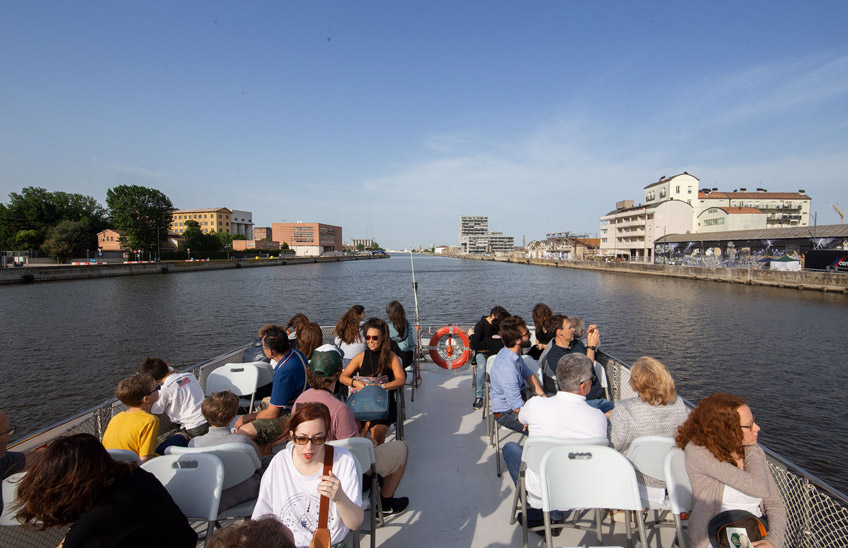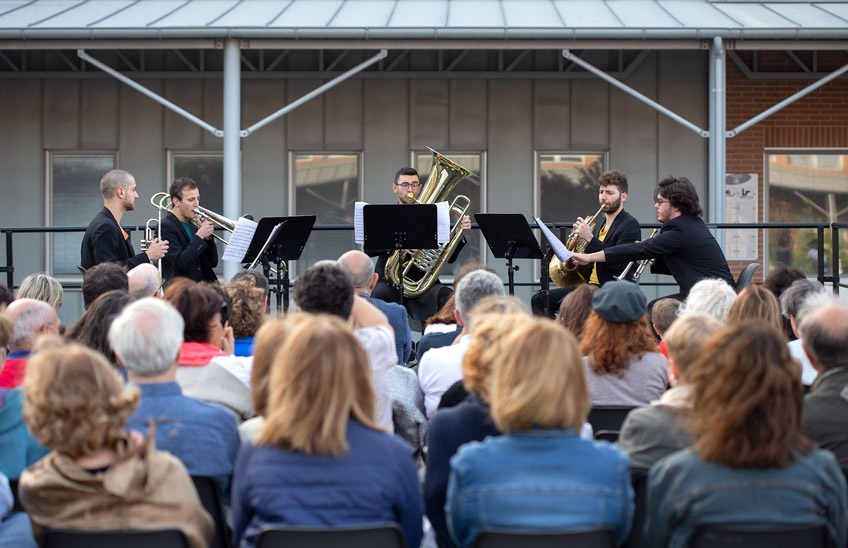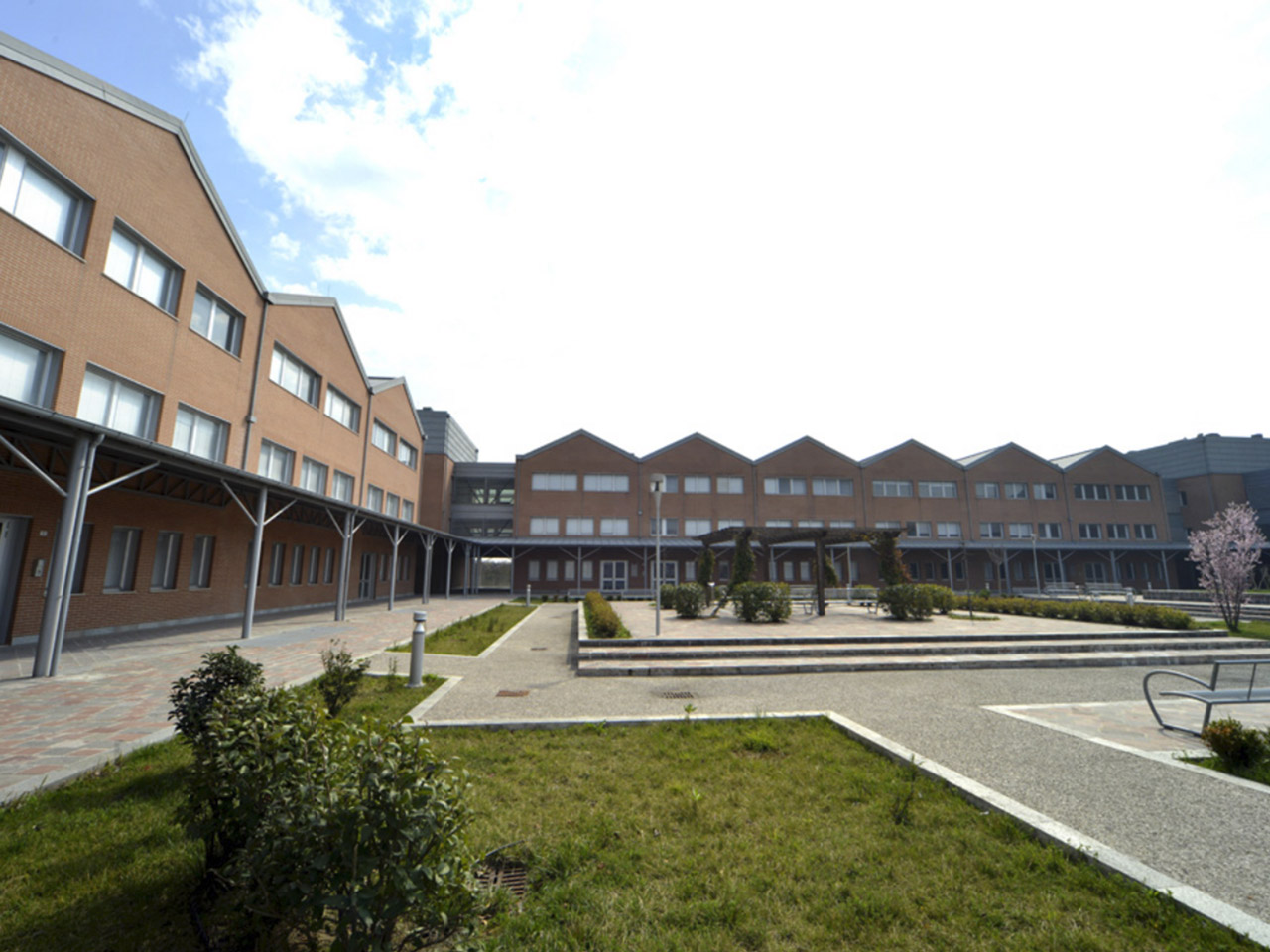© Luca Concas
Quintetto di Ottoni dell’Orchestra Giovanile Luigi Cherubini
Pietro Sciutto, Giorgio Baccifava trumpets
Stefano Fracchia horn
Salvatore Veraldi trombone
Alessandro Rocco Iezzi tuba
music
Lew Pollack That’s a Plenty (arr. L. Henderson)
David Short Tango for Brass
Nino Rota La dolce vita (arr. W. Morelli)
Sant Louis Blues (standard, arr. L. Henderson)
Claude Debussy Le petit negre (arr. G. Emerson)
Ennio Morricone Moments for Morricone (medley, arr. de Meij)
Duke Ellington Duke Suite (arr. F. Leone)
Attilio Margutti Ma se ghe pensu (arr. P. Pezzi)
Nino Rota Il Padrino (arr. M. Odetti)
John Lennon & Paul McCartney Three Songs for Brass Quintet (arr. D. Baldwin)
Frank Sinatra Sinatra in Concert (arr. J. Nowak & M. Odetti)
Brass instruments can quickly pass from pianissimo to fortissimo, producing sounds that are either dark or light, bright or deep. Yet, they are seldom used solo in the classical repertoire. Nonetheless, the brass section vibrates with the pulse of the XX century, the pulse of America, and forms an ideal horizon for the persuasive transcriptions of the songs by Lew Pollack (a contemporary of Gershwin’s) and great trumpet player David Short. And it will only be a small step from New York to the cinema, with Morricone and Rota as the best composers of film scores and more. Then we will go back to Debussy’s fascination with blackface minstrelsy, or to a popular classic like “Ma se ghe pensu”, about the experience of a homesick Genoese emigrant who longed to return to “listen to the waves break”, which he had not been able to do in his long years in America.
